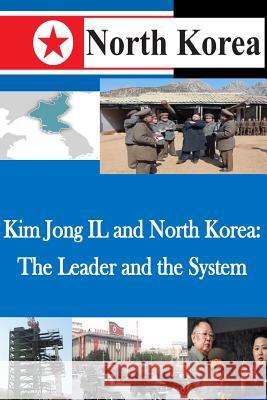Kim Jong IL and North Korea: The Leader and the System » książka
Kim Jong IL and North Korea: The Leader and the System
ISBN-13: 9781500493806 / Angielski / Miękka / 2014 / 56 str.
Much hyperbole surrounds the political regime in the Democratic People's Republic of Korea (DPRK, or North Korea). Many analysts argue that North Korea is a unique political system. What kind of regime is the DPRK, and what kind of leader does it have? A variety of labels are given to the North Korean regime. These include likening the regime to an organized crime family and to a corporatist organism. There are certainly merits to each of these approaches, but each has its limitations. Pyongyang does share some of the attributes of organized crime and certainly engages in criminal activity in a systematic and calculating manner. This pattern of illicit behavior includes the production and distribution of narcotics as well as the counterfeiting of foreign currencies, cigarettes, and pharmaceuticals. But the DPRK is more than a crime family-it possesses a massive conventional military force as well as significant strategic forces. Moreover, the regime continues to brainwash, imprison, or starve North Koreans, inflicting untold misery and death on its people. Corporatism, meanwhile, may provide insights into certain aspects of the system, but its utility is limited by the confusion that surrounds understanding of this concept. Certainly North Korea is distinct politically, but it also has significant commonalities with various regime types and authority structures. Pyongyang is a highly centralized and militarized bureaucratic regime organized around an all-powerful leader. This monograph examines the leader and the system, and identifies the regime type. The author contends that the North Korean political system is best conceived as a totalitarian regime that, although weakened, remains remarkably resilient. After analyzing the key elements of totalitarianism, he argues that the system's greatest test will probably come after the death of Kim Jong Il. While the totalitarian regime may not long survive Kim's passing, one cannot assume that the system will collapse. Rather, the end of totalitarianism may simply mean that the DPRK will enter a new "post-totalitarian" phase similar to the paths taken by other communist systems such as the Soviet Union and China. While the latter term may be a good fit to describe China's political system in the 1990s and first decade of the 21st century, it seems inaccurate to describe North Korea. North Korea has not undergone any process of "de-Kimification" Kim Il Sung remains a deity in 21st century North Korea and criticism or reappraisal is unthinkable. Moreover, no one has contemplated criticizing or challenging his legacy because, by all accounts, he remains universally revered by DPRK citizens, including defectors. Furthermore, any official reevaluation of Kim Il Sung is extremely unlikely because the regime is currently led by Kim's son. The most accurate way to characterize North Korea today is as an eroding totalitarian regime.
Zawartość książki może nie spełniać oczekiwań – reklamacje nie obejmują treści, która mogła nie być redakcyjnie ani merytorycznie opracowana.











